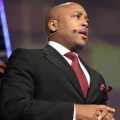John D. Rockefeller’s Amazing Biography – The Standard Oil Company
John Davison Rockefeller was one of the wealthiest men in the world. John started from scratch as he was born on 8 July 1839, in Richford, NewYork, into a family with modest earnings. He was the second to the eldest child. William Avery Rockefeller, his father, had a farm and used the product for trading. His mother, Eliza Davison, was very strict in terms of raising them up. It is very dissimilar to his happy-go-lucky father. In 1853, his family migrated to Cleveland, Ohio after residing in Oswego, New York for many years. John finished his secondary education in Ohio. He was excellent in mathematics. At an early age, he started selling sweets to the children in his hometown. John Rockefeller went to college for only three months. Then, he had his first occupation as a clerk when he was 16 years old.
John as a Bookkeeper
In 1855, John at 16 years old, was employed as a subordinate bookkeeper in a produce commission company named Hewitt & Tuttle. He was skilled in calculations, including the computation of transportation expenses. His salary was only about 50 cents per day. He was able to save $1000 from his meager earnings. With his savings, John built his own company, together with a partner, in 1859. He was 19 years old at that time. They earned $450,000, net of operating expenses, for their first year in the trading industry. Maurice Clark, his partner, was assigned to do fieldwork while Rockefeller took care of the paperwork, administration, accounting, and coordination with the bankers.
Business Expansion
Rockefeller excelled in administration and methodology. Throughout the Civil War from 1861 to 1865, their company flourished amidst the conflict between the Confederates, representing the South, and the Union, representing the Northern forces. In 1859, Clark and Rockefeller explored the possibility of investing in oil refining together with Samuel Andrews during the oil strike in Pennsylvania. Andrews was also good in the field of methodology. After two years, Maurice Clark left the company. The company was left to the care of Rockefeller and Andrews, and grew to be the biggest oil refinery in Cleveland.
John Rockefeller’s astute leadership helped the company survive the oil industry crisis with the help of S.V. Harkness and Henry M. Flagler. John opened his Standard Oil Company in 1870 in Ohio. It controlled one-tenth of the refining companies in America. To be able to expand and dominate the oil industry, he acquired the majority ownership of the refining companies in Cleveland, New York, Pittsburgh, and Philadelphia. He developed modern ways of transporting oil such as using the railroad tank car and using a pipeline. In 1879, he was able to control 90 percent of oil refineries. The Standard Oil Company also had its own facilities, warehouses, tank car fleet, ship, and port facilities.
A tremendous financial catastrophe, the Panic of 1873, made Rockefeller worried. As he had been close to monopolizing the state’s oil industry, he clashed with the Pennsylvania Railroad in 1877 that banded with other refining companies who wanted to rupture his control over the industry. However, protesters were forced to accept defeat in the same year.
Retirement
In 1895, John issued his retirement at the age of 56 from his Standard Oil Company and devoted his time to charitable activities. In 1904, a book entitled “The History of Standard Oil” written by Ida Tarbell focused on the ruthless activities in the oil industry committed by Standard Oil Company to gain control of the industry. The firm was found to be guilty of violating anti-monopoly laws and the Sherman Act. It was then forced to stop its operations and Rockefeller had no choice but to close the firm.
Charitable Deeds
John Rockefeller had a habit of giving one-tenth of his salary to charity even when he was still a clerk. As he became rich, his donations also increased. He spent his time and effort performing charitable deeds. In the early stages, he sought the advice of the Baptist Church. Then, the church asked him for a university. In 1892, John established the University of Chicago. It was the first philanthropic donation by Rockefeller. Overall, he donated a total of $80,000,000 to the university. In 1901, he had another charitable donation, to the Institute of Medical Research, in New York City. It is currently known as Rockefeller University. In 1902, the General Education Board became the recipient of his third major philanthropic deed.
Throughout the life of John Rockefeller, a total of $550,000,000 was spent on charitable activities. His wealth grew exponentially and to be able to help him distribute one-tenth of his money, he enlisted a group of consultants. In 1913, he set up the Rockefeller Foundation. It aimed to diversify the well-being of all people in the world.
Personal Life
John married his wife Laura Celestia Spelman in 1864 and they were blessed with 5 children (4 daughters and 1 son). One of their daughters, Alice, died in infancy.
Illness and Death
Due to acute depression in his 50s, John Rockefeller was discovered to be suffering from alopecia. It is a condition where one’s body hair was uncontrollably falling. By 1901, all the hair on his body had gone. He used a wig when going outside.
On May 23, 1937, John died at the age of 97 due to arteriosclerosis in Ormond, Florida. His body was buried in Lake View Cemetery, which is located in Cleveland.
John Rockefeller left a legacy as one of the leading American entrepreneurs of his time and was given the full gratitude of America for helping shape the country into what it is now.
Some interesting facts about John D. Rockefeller
1. He started out as an ordinary bookkeeper. Before he established Standard Oil and became a self-made billionaire, John D Rockefeller started his business career as a bookkeeper for a commodities merchant in Cleveland, Ohio. This marked the start of his journey toward becoming one of the richest men in modern history.
2. He valued thriftiness. Not only did he apply thriftiness to his own lifestyle, but also to the products and services provided by Standard Oil. His keen eye led him to become an expert at finding efficient ways to produce goods and sell them at the lowest price — something known as “high-volume, low-cost operations” today.
3. He believed in giving back to society. Despite being demonized for many years due to his unscrupulous business practices, Rockefeller believed in philanthropy and thus donated more than $540 million — around 10% of his huge wealth — towards various charities throughout his lifetime including education institutes such as The University of Chicago, and various other foundations which focused on scientific research and public health initiatives.
4. He didn’t believe in or use credit or banks. Due to his strong religious beliefs about not owing money or owing interest for loans, Rockefeller refused to use credit cards or banks for personal use or for business transactions despite having vast amounts of cash reserves at his disposal.
5. He constantly changed locations due to security reasons throughout his life. As he grew older (26 years after starting Standard Oil), Rockefeller began moving around frequently due largely due to security reasons but also because he enjoyed being close to nature while traveling around U.S states such as New York, Florida, Maine, and Ohio amongst others; often accompanied by friends or family members until he found a place suitable enough for him to stay permanently thereby settling down officially in New York City until he died 90 years later at 97 years old in 1937 on May 23rd at 11 pm EST.
About Standard Oil Company
Standard Oil is one of the most iconic and influential companies in American history. Founded by John D. Rockefeller in 1870, Standard Oil was the first large-scale petroleum refining company in the world. As it grew to become the largest oil company and trust in America, it transformed the industry, paving the way for many of today’s modern oil giants.
At its peak, Standard Oil controlled 91 percent of refined oil production and 85 percent of sales within the United States. An impressive rate of growth was achieved between 1895 and 1910 as Standard Oil absorbed or eliminated almost all competitors within its market. Rockefeller’s philosophy of creating efficiencies through consolidation and economies of scale enabled Standard Oil to create massive profits for its shareholders.
However, Standard Oil’s influence within the industry soon led to a public anti-trust case against it. The Supreme Court ruled against Standard Oil in 1911, citing anti-competitive tactics that excluded competitors from entering markets and keeping prices artificially high. Subsequently, Standard Oil was dissolved into separate companies that later became independent giants such as Chevron, ExxonMobil, BP, and Royal Dutch Shell.
Despite this ultimate outcome, Standard Oil had already had an immense impact on the industry by then. It set standards regarding everyday innovations as well as safety protocols that are still used today by leading oil producers across the globe. Additionally, it was one of America’s largest employers around 1900 with some 34,000 workers at its peak. By using advanced techniques such as refining crude oil into low-cost kerosene to light lamps and Cookstoves, Standard Oil played a major role in democratizing energy around America – something which is still remarkably influential to this day.
As one of the most impactful companies in both business and societal sectors, Standard Oil’s legacy will likely last for many years to come; from advances made in safety regulations, to discovery techniques that power current energy production methods – it drew a roadmap to success which modern oil businesses are still following over a century later.
John D. Rockefeller’s Quotes
“If you want to succeed, you should strike out on new paths, rather than travel the worn paths of accepted success.” As a self-made man who started with practically nothing and built himself into an American titan, Rockefeller certainly embodied this sentiment and practiced what he preached every day. In life and business alike, it’s important to think and plan strategically—striking out in bold new directions rather than simply repeating cookie-cutter approaches used by others with limited or moderate success.
“The way to make money is to buy when others are despondently selling.”
“It will do you no good unless you act on it.” This quote succinctly summarizes the importance of “action”—stringing together successful financial decisions with execution in order to wield maximum benefit from good ideas or advice. While it may be easy enough for people to show up with great plans, having the drive and determination to actually put those thoughts into motion typically separates winners from losers in both business and life.
“Good management consists in showing average people how to do the work of superior people.” Few statements capture better Rockefeller’s own personal drive—which fueled his rise from clerk kid to the captain of industry—than this quote that illustrates how his eye for talent helped lead his growing enterprises forward towards success after success. Whether creating systems that enabled average employees to leverage their knowledge or finding experts who could help steer operations towards excellence over time, great leaders are essentially those who can bring out the strengths of others so that their collective performance achieves far more than initially thought possible.
Closing Thoughts
Although often criticized for his business practices being built by leveraging his wealth and market dominance to crush the competition, Rockefeller used his immense power and fortune for good. As part of his philanthropy effort, many educational institutions were founded with funds from Rockefeller as well as charitable foundations such as the Rockefeller Foundation and the first major modern academic institution to focus solely on public health – The Johns Hopkins University. His donations also went towards causes ranging from health care reform to civil rights initiatives across the country.
In addition to these philanthropic gestures, Rockefeller’s impact on American capitalism can also be seen in several laws addressing market concentration, consumer protection, and antitrust enforcement that were passed during the Progressive Era. These legislative measures ensured that financial resources would become more efficiently distributed throughout American society by curbing corporate power.
John D. Rockefeller is undoubtedly one of the most important figures of nineteenth-century America, laying down the foundations for contemporary capitalism through his business acumen and unsurpassed philanthropic nature. We owe much to him today — from economic welfare policies created to ensure competition among large companies to sanitation efforts aiming at promoting a healthy lifestyle among citizens — thanks to this seminal figure that left an astonishing legacy for generations to come
John D. Rockefeller’s Story – Video
Here is a cool video, showing the story of the first billionaire in the USA:
More Useful Resources About Rockefeller
https://en.wikipedia.org/wiki/John_D._Rockefeller
https://www.biography.com/people/john-d-rockefeller-20710159
Did you enjoy this cool post? Please, consider sharing it with friends and help us write more articles like this.
Did you enjoy this cool post? Please, consider sharing it with friends and help us write more articles like this.





